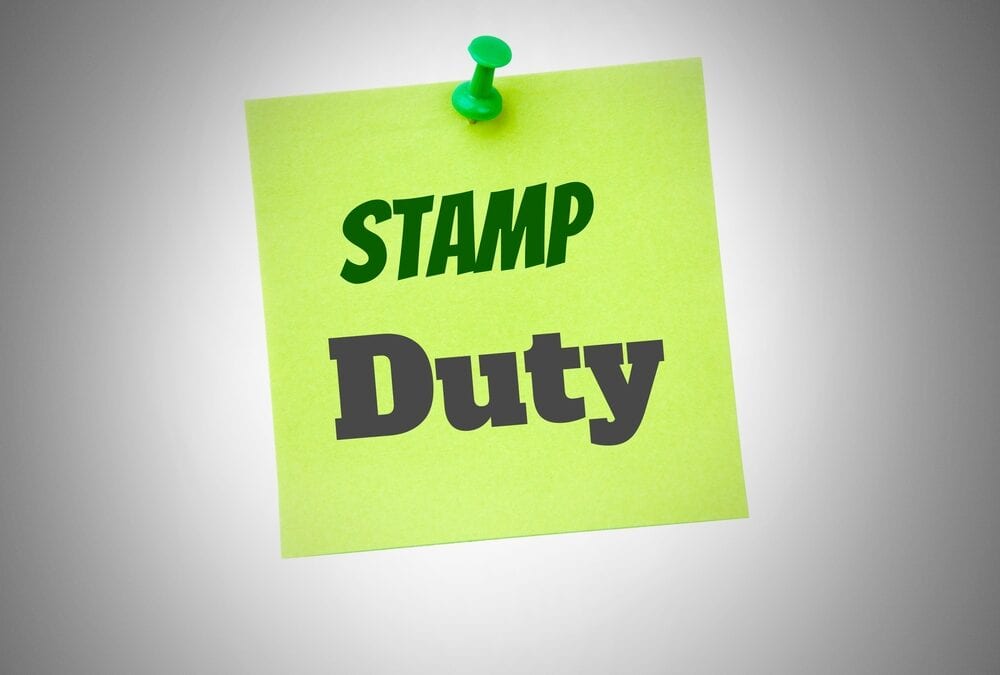
by admin | Apr 23, 2021 | Mortgage News
Desperate times call for desperate measures. The COVID19 pandemic called for the government to take strong actions. One of those actions was the Stamp Duty holiday. Now that it has been in place for six months, its impact can be assessed. In short, people can now ask whether or not it was (and still is) a good idea.
The housing market since March 2020
Lockdown one was horrendous news for just about every sector of the UK’s economy. The property sector was particularly hard hit. Spring is the property market’s “festive season”. It’s when buyers shake off their winter slumbers and start house-hunting. There is generally a lull in summer followed by an uplift in autumn and then winter hibernation.
It would have been bad enough if lockdown one had lasted three weeks as originally announced. Instead, however, it dragged on until July. If the property market had followed its usual cycle, the property market could have had a six-month slump. Instead, the government stepped in with the Stamp Duty holiday.
Since then, overall, the only way has been up. According to data from the Halifax, house prices in March 2021 were 6.5% higher than in March 2020. To put that in figures, the average house has gone from costing £239,176 to costing £254,606. That’s an increase of almost £1.3K per month over the last 12 months.
The impact of the Stamp Duty holiday
The Stamp Duty holiday still has another 6 months to run (of which three will be at a reduced discount). It’s therefore too early even to attempt a full cost/benefit analysis. It’s also impossible to know what would have happened if the Chancellor hadn’t offered the tax break.
The housing market could have gone into a six-month downturn but then picked up again in autumn as usual. That said, lockdown two and tiered restrictions might have made this more difficult. Without any unusual motivation, buyers might just have decided to wait out both COVID19 and Brexit and reassess at a later date.
If that had happened, it could have serious repercussions for the housing market. With minimal buyer demand, sellers would have faced the prospect of lengthy sales times and/or lower sales prices. A slowdown in the property market would, of course, have impacted everyone connected with it and that’s a lot of people.
The real estate sector is not just a major source of direct employment. It also generates significant activity in many other sectors. In fact, during the lockdown, home-related businesses which were able to keep going did great business as people worked on improving their homes.
So was the Stamp Duty holiday really a good idea?
Perhaps it would be fair to say that the Stamp Duty holiday was, in principle, a good idea. It just wasn’t implemented as well as it could have been. For example, the Chancellor could have tapered the relief according to the price of the home. He could also have offered some sort of extra benefit to first-time buyers so that they kept an advantage over onward movers.
He could also have based the relief on the exchange date rather than the completion date. Admittedly, he would probably have had to put some kind of deadline on completion. This could, however, have been made fairly generous to allow for COVID19-related delays.
This last point would have helped to avoid buyers finding themselves pushed towards a “cliff-edge”. The government has now lengthened the journey to the edge and made the landing slightly smoother. At the end of the day, however, buyers are still going to be looking at two fairly steep tax changes coming up in 2021.
Think carefully before securing other debts against your home. Your home may be repossessed if you do not keep up repayments on your mortgage

by admin | Apr 18, 2021 | Mortgage News
If you don’t like the term “haggling”, think of it as “negotiation”. That’s essentially what it is. In simple terms, the seller (or their agent), is trying to achieve the highest possible price for their home. You are trying to achieve the lowest possible price for the property. This is not about “win/lose”. It’s about reaching an agreement. Here are some tips to help.
Prepare thoroughly
Guide prices are a guide to what a seller (or their agent) wants for the property. You should therefore regard them as sources of information rather than as instructions. What you really need to know is the state of the local market and the seller’s situation. You can find out a lot about the first point with some thorough digging around the internet.
The key point to understand is that you need recent, local data. Recent data tells you what the market is doing now, not what it did in the past. Local data tells you how the market is performing in the locations which interest you. To take an extreme example, there’s no real point in looking up data from London if you want to buy property in Aberdeen.
In fact, if you’re looking at buying in a city, then you want data at local-authority level if not postcode level. Be aware that there can be significant differences in property prices in different areas of a city. You need to be sure that you’re comparing like with like.
Get preapproved for a mortgage
If you need a mortgage, then get preapproved for one. This marks you out as a serious buyer and reassures sellers. Think about whether or not there are any other steps you could take to make a seller’s life easier. For example, can you be flexible with your move date?
Understand the seller
It’s always safer to deal with a seller who has a clear reason to move. This reduces the chances of them pulling out of the sale, leaving you high and dry (and possibly out of pocket). The more motivated a seller is to move, the more chance there is that they will be willing to accept a lower price in return for a quick and convenient sale.
There are, however, a couple of caveats here. Firstly, a seller may have a baseline price below which they cannot, or just will not, go. For example, they may need (or just want) enough to clear their mortgage. Secondly, the more competition there is for a property, the more likely it is that someone else will offer both a higher price and a quick and convenient sale.
Keep a clear head
Until the sale is complete, in fact, arguably until you’ve moved in, you’re buying a property. It may be someone else’s home, but it is not yours. Keep that in mind at all times.
Obviously, you should only be looking at properties where you would be happy to live. You must, however, avoid getting emotionally attached to them. Your attitude needs to be that you want a good deal for your money and will go on looking until you get one.
If any given property is out of your budget (or just overpriced) and the seller is not prepared to reduce the price, then just move on. If you really liked the property, then keep an eye on the listing. If the seller does not get a sale, they might become more flexible on price further down the line.
By the same token, however, be careful about focussing so much on getting a bargain that you lose out on a great property you could have afforded.
Think carefully before securing other debts against your home. Your home may be repossessed if you do not keep up repayments on your mortgage
Please contact us for any more information.

by admin | Apr 16, 2021 | Mortgage News
Vaccines are being rolled out and spring is rolling in. That’s two reasons for there to be good cheer throughout the UK. Will this mean good cheer for the property market? Here are some factors to consider.
The economy should be reopening
All four parts of the UK have mapped out plans to exit lockdown. Admittedly those plans will depend on circumstances. In principle, there could be halts and even backwards steps before the UK emerges from the pandemic. Overall, however, the general direction of travel should be very clearly towards a post-lockdown “new normal”.
Reopening the economy should have the very practical benefit of improving housing affordability. Of course, it would be unrealistic to expect too much too soon. It’s reasonable to assume that some sectors and job areas will recover more quickly than others. In blunt terms, the less a sector has been hurt, the quicker it will recover.
That said, as sectors recover, the benefits of recovery should begin to spread. For example, as people get their jobs back they will have more disposable income. This can then be spent at other businesses.
People will have clarity on remote working
Companies are going to have to decide whether or not they’re going to support remote working over the long term. This doesn’t necessarily have to mean full-time remote working. Even companies deciding to offer flexible/hybrid working could have a meaningful impact on the housing market.
In simple terms, if remote working goes mainstream, cities and traditional commuter-belt areas could lose their appeal. They could be overtaken by areas where people can afford more space (inside and outside). These areas could have longer commutes, but if people are making them less often this could be an acceptable trade-off.
The Stamp Duty holiday is still on
New buyers might have to more very quickly indeed if they want to get the full benefit of the Stamp Duty holiday. That said, it’s not entirely impossible. If sellers are prepared and conveyancers are available and everything goes smoothly it could be done.
Even if they miss out on the full discount, however, there is still the “consolation prize” of a lower discount available for three months after the main holiday ends. What’s more, if the Chancellor then puts Stamp Duty back as it was, then first-time buyers will still benefit from reduced Stamp Duty after the end of the temporary tax break.
Help to Buy has been extended
This isn’t exactly news, but it’s still relevant. The initial Help to Buy scheme has been extended to counterbalance delays caused by COVID19. The new Help to Buy scheme will be implemented as planned. The government has also outlined an initiative to provide guarantees for 95% mortgages. This is, however, still in the pipeline.
Interest rates remain an open question
The Bank of England advised banks to prepare for the possibility of negative interest rates. Of course, that’s not at all the same as saying that they will actually happen. It is, however, making the point that they cannot be ruled out. Although negative interest rates are not at all a new concept, they would be new to the UK. Hence it’s anyone’s guess what their impact would be.
At the same time, interest-rate increases cannot be ruled out either. Obviously, if interest rates go up, then this could reduce affordability. That said, if interest rates were going up as a result of strong economic growth, the end result could still be positive.
The housing supply is unclear
Buyers need there to be sellers. Currently, it’s unclear how much new-build and existing property will be on the market this spring. Lack of supply could put a damper on the housing market. It could, however, alternatively lead to fewer transactions of higher value.
Your property may be repossessed if you do not keep up repayments on your mortgage.
For more mortgage information please contact us




Recent Comments